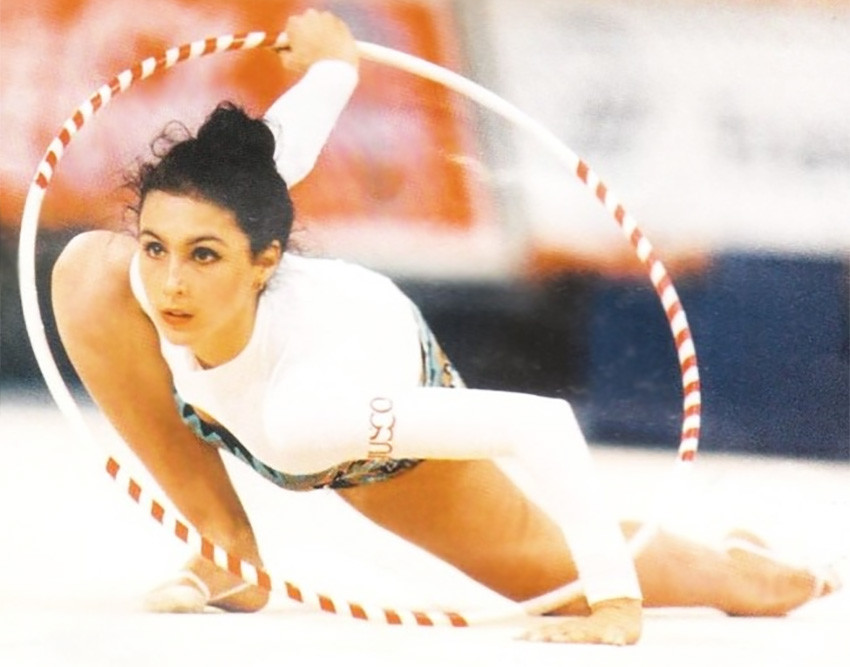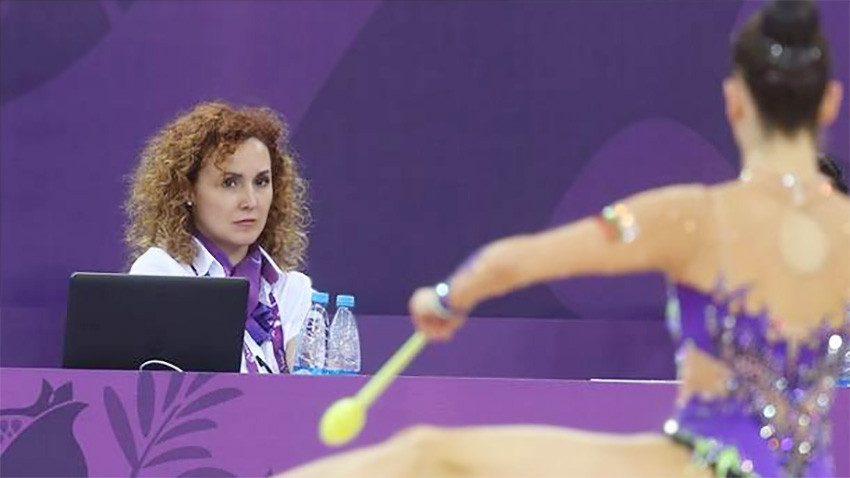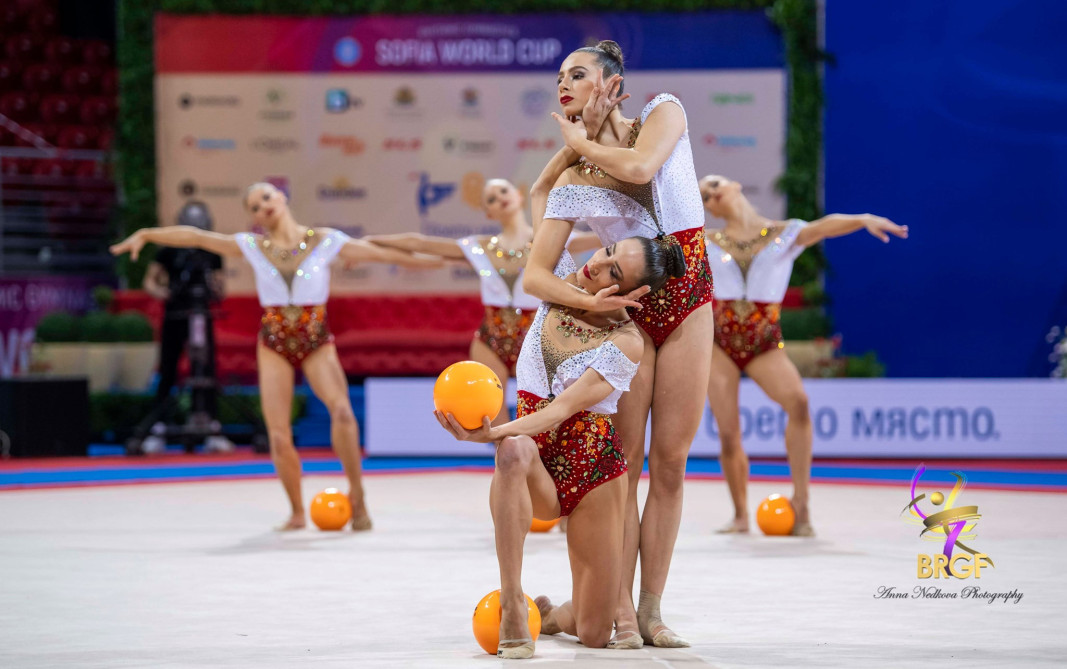Election days often make us think about the unity of the nation. One thing that has been able to unite us are the successes by Bulgaria’s athletes, with rhythmic gymnasts prominent among them. This summer the girls conquered the Olympic top in the all-around, a first in the history of this sport in this country. And did you know that there are two Bulgarians – Maria Gigova and Maria Petrova – who are in the Guinness Book of Records as the only three-time world champions?

Both are still working for the development of the sport which has shaped their entire lives, and at the beginning of November, Maria Petrova took the next big step in her professional career – she was elected Second Vice President of the Rhythmic Gymnastics Technical Committee at the International Gymnastics Federation.
In an interview with BNR-Plovdiv, the town where she was born, she says that this has made her very happy, because the road she has chosen has proved to be the right road to take, and she is now exactly where she wants to be.
She says it is very important to her to take the next step in a person’s professional development with prior knowledge, so they will know what is required of them, and what to do. That is why in her career she takes baby steps:
“Because I want to know what each step is, to “live” it, to experience it, to learn,” the champion explains. Something that is corroborated by the past 16 years which began for her at the bottom, as a category B judge, to reach a top position in world gymnastics. Maria Petrova admits that at the time of her professional career, results were a must and second place was regarded as failure. Looking back now, however, she says that was going too far. Nevertheless, she is adamant that it takes discipline and patience to reach the top.

“No pain, no gain,” she says. And with all the experience she says she knows exactly where she wants to take gymnastics:
“I have witnessed major changes in rhythmic gymnastics. The first changes were in 1996 when I was still a gymnast, during the Olympics in Atlanta, USA. That was when people started saying we should stop all that dancing, that it is a sport after all, not art and we need to give prominence to the sporting element. And from that time on we underwent serious changes which pushed us in the direction of the sporting aspect of rhythmic gymnastics. And so it has been since then when we are just a sport, not an art. In the past few years we have been trying to find a balance between the components – body, apparatus, artistic performance - but body and apparatus degree of difficulty has prevailed. It is my ambition, and I will do my best to bring back art, composition, drama, to have the body, the apparatus follow the music, to enthrall the audience, to touch people. To make rhythmic gymnastics a sport and an art once again.”

As deputy chair of the Bulgarian Rhythmic Gymnastics Federation, and also being Bulgarian, Maria Petrova says she is really proud of the achievements of Bulgaria’s Olympic champions, describing their success in Tokyo as momentous.
“When we set our sights on the Olympic gold eight years ago, hardly anyone actually believed it could happen. But we all worked together to this end. Let me repeat that – all of us! Because this success does not belong to the gymnasts alone. It came thanks to a great many people who worked tirelessly with one goal in mind – to make every effort so that our girls will earn what they deserve. And they really did earn this gold medal.”

The Bulgarian girls’ “eternal rivals” for the top positions in rhythmic gymnastics are the gymnasts from Russia. “I dare say Russia is a country with a long history and good gymnasts, with a very good school, but we still have a lot to give to our sport to make it more objective,” Maria Petrova says.
The year will end for Maria Petrova on 16 December in Armeets Arena in Sofia with a grand gala benefit “Dream” dedicated to our golden girls in rhythmic gymnastics. And then all eyes will turn to 2022 when, in the spring, Sofia is to host the world cup, and in September – the rhythmic gymnastics world championships.
Interview by Dian Nikiforov, BNR-Plovdiv
Editing by Vessela Krasteva
Photos: BGNES, BRGF, librarySixteen-year-old snowboarder Malena Zamfirova has been named Europe’s best young athlete by the European Olympic Committees (EOC) , Bulgaria’s BTA news agency reported. “We are very happy that our exceptional and talented girl was recognised by all..
Hristina Peneva and Kaloyan Petrov made history by topping the overall rankings in the Mixed Synchro category of the 2025 Trampoline World Cup series. This is the first time such a trophy has been awarded by the International Gymnastics Federation,..
Sixty-six teams from Bulgaria, Romania, Greece and Spain are taking part today in the off-road competition 'King of Trial 2025' near Kostinbrod , BTA reports. The race, which will take place in a stone quarry near the village of Gradets, will see..

+359 2 9336 661
